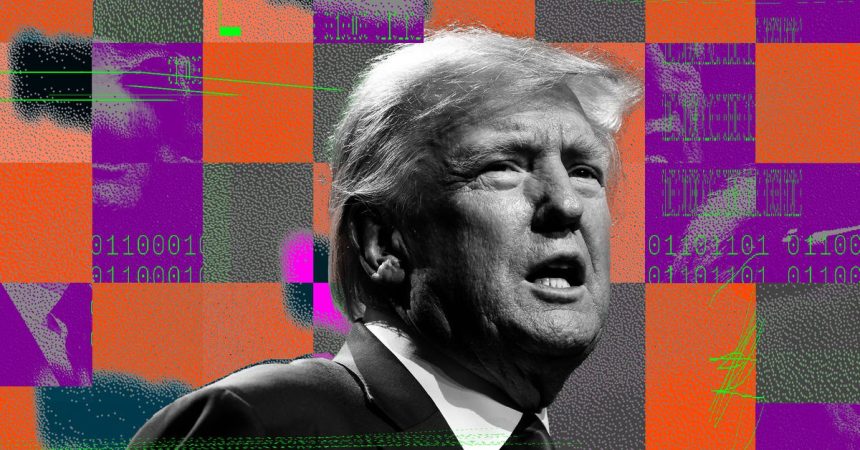President-elect Donald Trump’s recent intervention in the ongoing TikTok saga presents a dramatic twist in the platform’s fight for survival in the United States. Facing an impending ban based on national security concerns, TikTok has found an unlikely ally in Trump, who is petitioning the Supreme Court to allow him to negotiate a deal that would avert the ban. This marks a stark departure from Trump’s previous stance during his first term, where he championed the ban, citing potential threats posed by TikTok’s Chinese ownership. His current position reflects a pragmatic shift, influenced by the platform’s demonstrable impact on the 2024 election, which saw his campaign effectively leverage TikTok’s reach. This change in perspective underscores the evolving political landscape and the recognition of TikTok’s growing influence in the digital sphere.
Trump’s appeal to the Supreme Court hinges on his assertion that he possesses the unique skills and political leverage necessary to broker a successful deal. He argues that his “consummate dealmaking expertise,” reinforced by his electoral mandate, provides him with the necessary authority to navigate the complex negotiations required to address the national security concerns surrounding TikTok while preserving the platform’s presence in the US. This argument positions him as the singular figure capable of achieving a resolution, emphasizing his perceived ability to balance national security interests with the practical considerations of maintaining access to a platform with significant user engagement and political relevance. His recent meeting with TikTok CEO Shou Chew at Mar-a-Lago further signifies his commitment to exploring a negotiated settlement, suggesting a move towards a more cooperative approach than his previous hardline stance.
The crux of the legal battle revolves around a bill passed by Congress that mandates a TikTok ban in January, citing security risks linked to its parent company, ByteDance, based in China. While the bill allows the president to postpone enforcement if meaningful progress is made towards ensuring TikTok’s independence from Chinese influence, the January 19th deadline for this determination presents a significant challenge. Falling just one day before Trump’s inauguration, the deadline effectively prevents him from personally overseeing the negotiation process, a point he emphasizes in his Supreme Court filing. Trump argues that delaying the deadline would allow him to formulate a comprehensive deal that addresses the underlying security concerns, potentially eliminating the need for the Supreme Court to grapple with the complex First Amendment issues raised by the ban.
Trump’s request for a stay on the January 19th deadline underscores his confidence in his ability to achieve a favorable outcome through negotiation, a process he believes would render the current legal battle moot. He contends that a negotiated solution is preferable to a court-imposed outcome, emphasizing the potential for a more nuanced and adaptable agreement that can address the evolving security landscape. By circumventing a direct legal ruling on the First Amendment implications of the ban, Trump seeks to avoid setting a potentially restrictive precedent for future cases involving online platforms and national security.
The Supreme Court’s decision on Trump’s request holds significant implications for the future of TikTok in the US and the broader landscape of online platform regulation. A stay on the deadline would grant Trump the opportunity to pursue his deal-making approach, potentially leading to a compromise that balances national security concerns with the continued operation of TikTok. Conversely, a denial of the stay would likely force the court to address the complex constitutional issues surrounding the ban, potentially setting a legal precedent that could impact other online platforms facing similar scrutiny. The court’s ruling will also have broader implications for the balance of power between the executive and legislative branches in matters of national security and online platform regulation.
Ultimately, the fate of TikTok rests on the Supreme Court’s assessment of Trump’s arguments and the broader legal and political context surrounding the case. The court must weigh the potential benefits of a negotiated settlement against the urgency of the national security concerns raised by the ban. This decision will not only determine the future of a popular social media platform but also shape the legal framework for regulating online platforms in the context of national security, setting a precedent with far-reaching consequences for the digital landscape.



